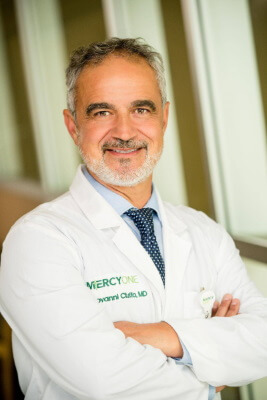
Coronary artery bypass surgery (CABG) has been a cornerstone in the treatment of coronary artery disease (CAD), providing a lifeline for individuals with blocked or narrowed arteries. Traditionally, CABG involved a sternotomy, a procedure requiring a sizable incision through the chest, but the landscape of cardiac surgery has transformed the way we cure coronary artery disease.
Minimally Invasive Coronary Artery Bypass Surgery (MICABG)
Unfortunately, many patients are reluctant to consider Minimally Invasive Coronary Artery Bypass surgery and want to opt for a “cheap way out” (stents) that often commits them to even more trouble in the future. Here at Minimally Invasive and Bloodless Heart Surgery with Dr. Ciuffo, we will explore the significance, procedure, benefits, and advancements associated with minimally invasive approaches to coronary artery bypass surgery.
Significance Of Minimally Invasive CABG
Minimally invasive coronary artery bypass surgery (MICABG) represents huge advancements in the realm of cardiac surgery. This procedure deals with badly clogged pipes (the coronary arteries). During MICABG, a new pipe (a bypass) is connected between the aorta (the equivalent of the main water supply) and the coronary artery segment downstream from the blockage (the “clogged pipe”). This bypass serves the purpose of bringing back a normal flow of oxygenated blood to the portion of heart muscle supplied by the blocked coronary artery
The Procedure
Patient Selection
Not all patients are candidates for MICABG, and eligibility is determined based on factors such as the location and severity of coronary artery disease, overall health, and more.
Anesthesia
MICABG typically involves general anesthesia to ensure that the patient is unconscious and pain-free throughout the surgery.
Small Incisions
Instead of a sternotomy, MICABG is characterized by small incisions, often between 3 to 5 inches in length. These incisions are strategically placed to access the target coronary arteries.
Closure of Incisions
The wound is then closed with plastic surgery techniques. This approach can basically afford most of our patients a scarless and often painless operation.
Advantages Of Minimally Invasive CABG
Reduced Trauma and Scarring
The most apparent advantage of MICABG is the minimized trauma to the chest. Small incisions result in less damage to surrounding tissues, muscles, and bones, reducing postop pain and discomfort.
Quicker Recovery Time
MICABG is associated with a faster recovery compared to traditional CABG. Patients experience less pain, enabling a quicker return to daily activities. Hospital stays are typically shorter, and the overall recovery period is accelerated. Most patients recover rapidly and are able to return to their homes and families within two to three days.
Lower Risk of Infections
The reduced size of incisions in MICABG lowers the risk of postoperative infections. In traditional CABG, larger incisions expose patients to a higher likelihood of infections, whereas MICABG minimizes this risk, contributing to a more favorable recovery profile.
Improved Cosmetic Outcomes
Smaller incisions in MICABG lead to improved cosmetic outcomes. Patients often appreciate the aesthetic benefits of reduced scarring, addressing concerns related to the visible effects of surgery.
Less Blood Loss
MICABG is associated with decreased blood loss during the procedure. The specialized instruments and precision in this approach contribute to a more controlled surgical environment, reducing the need for extensive blood transfusions.
Faster Return to Normal Activities
The quicker recovery associated with MICABG allows patients to resume normal activities sooner than with traditional CABG. This aspect is particularly valuable for individuals with active lifestyles who seek to minimize the impact of surgery on their daily routines.
Contact Dr. Ciuffo Today
Minimally invasive coronary artery bypass surgery represents a transformative approach to cardiac surgery, offering numerous advantages over traditional open-heart procedures. If you or a loved one is interested in further information about heart health or cardiovascular risk, please get in contact with us today. Visit our website to make an appointment, or call our office at (702) 333-7200 to speak with a team member. For additional information about our practice, please visit Nevada Heart and Vascular or University Medical Center.

